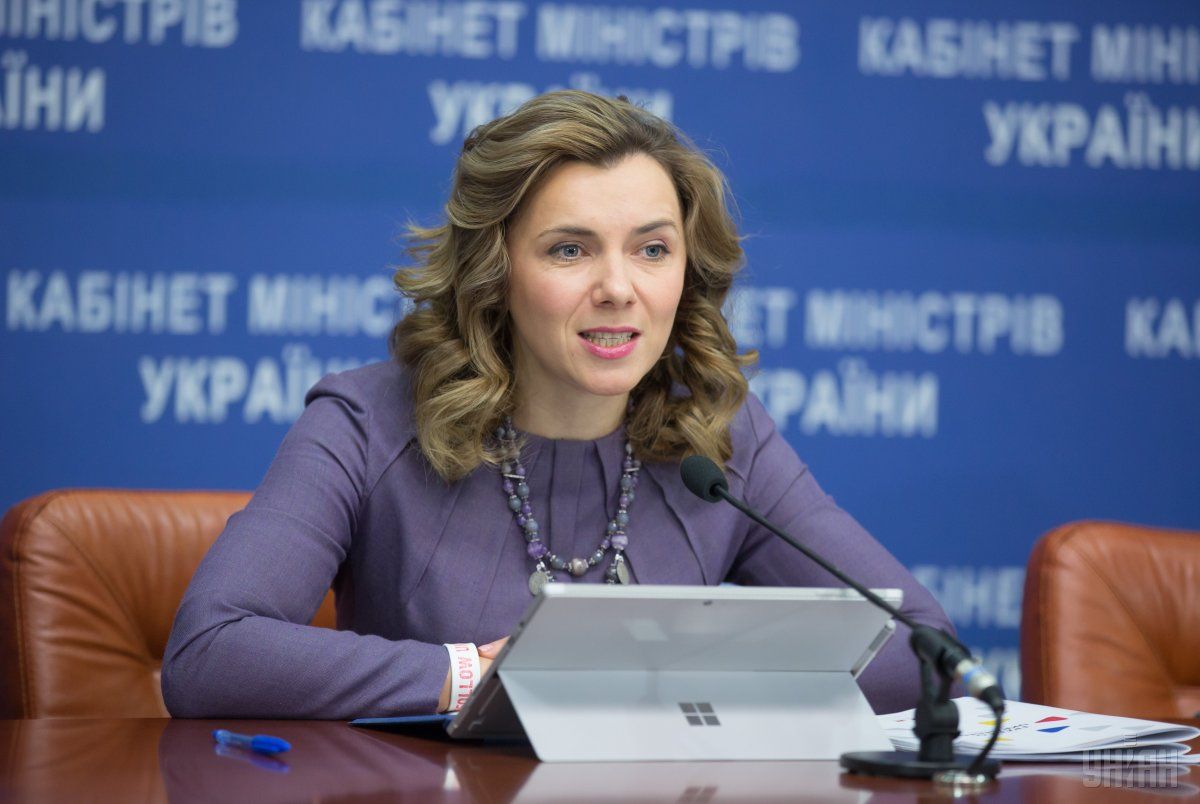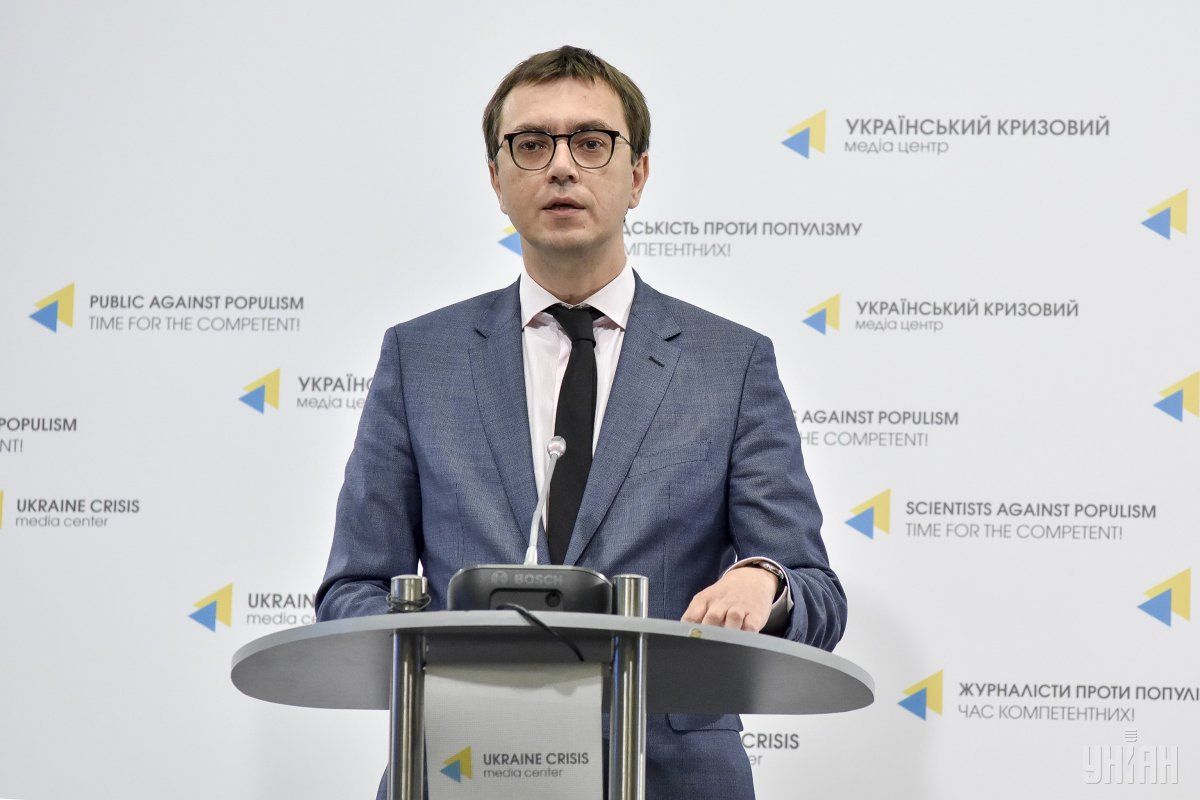
Week's balance: FTA with Israel, paradise for low-cost airlines, and record placement of domestic bonds
The Ministry of Finance made a placement of domestic bonds, this year's largest. Ukraine and Israel are finally set to sign off an agreement on a free trade zone. Discount airlines will open new flights from Ukraine. These are the past week's key economic news.
Ukraine is not Russia. The difference between the two countries was once again clearly demonstrated in the past week. While the whole world is trying to minimize relations with the toxic Russia, expelling its diplomats (read "spies"), the things are clearly different with Ukraine – foreign powers strive to conclude agreements on economic and political cooperation with Kyiv. After the entry into force of the DCFTA with the European Union, and an FTA deal with Canada implemented last August, now it's turn to conclude another important agreement, with Israel. Prime Minister Volodymyr Groysman said that the parties had reached the final stage of their talks: "In 2017, we worked intensively toward the completion of negotiations on a free trade zone with the State of Israel. Today such talks have come to a completion," Groysman told a government meeting.
The prime minister has not yet announced the date of the signing, only assuring that in the near future the relevant opportunities will be created. "I hope that the Prime Minister of Israel will be able to visit Ukraine so that we can agree on this issue," he said.
Thus, Ukraine will liberalize mutual access to the markets of goods and services with yet another country.
It should be noted that even without this agreement, Ukraine's trade with Israel stands at about $800 million. According to the Ministry of Economic Development, the main articles of Ukrainian exports to Israel are cereals - at 44.1%, ferrous metals – at 26.4%, and food products - at 9.8%. The main imports from Israel to Ukraine are petrochemical products (41.4%), chemical products (17.4%), and plastics and polymeric materials (7.1%).
Deputy Minister of Economic Development and Trade, Ukraine's Trade Representative Natalia Mykolska said at a government meeting that the free trade agreement with Israel provides for the immediate opening of 80% of Israel's market for Ukrainian industrial products. According to Mykolska, the remaining part of the industrial products market will be gradually liberalized, with the exception of jewelry products from both sides.

At the same time, she noted that the scheme of liberalization of access of agrarian products to the market of Israel will be more complicated. "As for agricultural products, the liberalization scheme will be a bit more complicated. There will be an immediate cancellation of duties for certain types of products, there will be an immediate cancellation of duties within the limits of quotas, and there will be a partial cancellation of duties and a gradual cancellation of duties," the trade representative stressed.
Thus, the FTA agreement will allow Ukrainian businesses to profit on the opportunities of duty-free access to a new market, while on the other hand, prospects for the import of raw materials and advanced technologies are also opening up. As a consequence, there are factors for the economic growth.
No less important was another message of the Prime Minister. According to him, Ukraine and the European Union signed a "roadmap" for integrating our industry into the value chain of European products. "Yesterday, I would like to emphasize that there was a meeting with the Commissioner of the European Union Elzbieta Benkowska], where we talked about supporting Ukrainian industry. Our main task, and yesterday the "road map" with the European Union was signed, is how to integrate Ukrainian industry into the value chain of European products," the prime minister said at a government meeting.
"When we say that Ukraine is seen as a partner in the industrial production chain, this opens up an additional opportunity for us to accelerate economic growth," Groysman added.
In addition, the Cabinet of Ministers ordered the creation of an Office for Export Promotion, previously functioning as an organization based on a project team of the Ministry of Economic Development and Trade, in the form of a state institution. "Finally, the state, in addition to policy-making, will invest the taxpayer's funds in the service functions, in order to provide services to Ukrainian exporters. To educate them, help them enter foreign markets, seek partners abroad, look for new opportunities, and look at other markets through consulting," trade envoy Mykolska said.
Plane ticket prices falling, railway prices growing
Ukraine is gradually becoming a "flying" country. This was confirmed by an unprecedented passenger air traffic last year with 16.5 million passengers serviced, which is a record for the entire period of Ukraine's independence. In many ways, it is due to the decline in prices for air tickets which came with the arrival of new airlines, in particular, discount carriers. Competition, as we know, always plays into the hands of the consumers. It became known that the largest European low-cost airline Ryanair will finally start operating in Ukraine, set to fly from the airports Boryspil and Lviv. Last week the Minister of Infrastructure Volodymyr Omelyan said that his ministry was negotiating with Ryanair about the organization of air transportation from the airport of Kherson as well.

"We are currently negotiating with Ryanair to start air traffic from the Kherson region, the city of Kherson," Omelyan said, adding that "we will also start 'pulling' Ukrainians from Crimea."
"That's in order for them to return to Ukraine, use cheap air tickets, visit Europe and then return Ukraine to Crimea," the minister explained.
By the way, Ryanair CEO Michael O'Leary earlier said that the company is negotiating the opening of flights with four Ukrainian airports besides Lviv and Boryspil.
The potential of the Ukrainian air market was also seen by other companies. In the past week Hungarian low-cost airline WizzAir launched new flights from Lviv to Dortmund (Germany), Katowice and Gdansk (Poland). The passengers will be able to fly to these cities for about UAH 700.
And the Italian low-cost carrier Ernest Airlines announced that starting June 22, it would launch regular flights from Kyiv to Bologna (Italy) at a price of EUR 49. It is noteworthy that the Italian carrier is not going to be limited to that single route. Ernest Airlines plans in the summer to launch regular flights from Lviv to Milan (Milan Malpensa airport) and Rome (Fiumicino).
Other airlines are showing increased interest in Lviv. On Wednesday, Polish LOT launched a new flight from Lviv to the city of Olsztyn, which is located in the north of Poland costing UAH 800.
Also, in the past week, Swiss International Airlines, a member of the Lufthansa Group, following the Ukraine International Airlines, opened direct flights from Kyiv to Zurich.
If the trend pursues, it will be cheaper to fly by plane from Kyiv to any European country than to take the train from the Kyiv to the western Ukrainian city of Uzhgorod. While the Minister of Infrastructure, Volodymyr Omelyan, does everything in order to reduce air ticket prices, things are the opposite with railroad transportation - he defends and considers the attempts of the monopoly, Ukrzaliznytsia, to justify another price hike.
At the same time, the ministry is not developing a regulatory framework for the appearance of private rail services. And in view of the lack of competition, the monopoly will continue raising prices for their services and turn a blind eye to the fact that on corruption in the tenders by Ukrzaliznytsia, the state is losing a huge amount - up to UAH 15 billion per year.
"Po" and "Go": Who is profiting on old "Yanukovych schemes"

The Ministry of Finance set a new record. At the beginning of the past week, the Ministry placed domestic bonds worth a record amount this year (UAH 2.7 billion and $669.4). The hryvnia funds were attracted by creditors on average at 17% per annum, and those in foreign currency - at an average of 5.2%.
Raising funds through domestic bonds is not uncommon. Since early March, the Ministry of Finance has borrowed UAH 8.5 billion, EUR 123 million, and $669.4 million. In 2017, it was UAH 32.8 billion, $1.8 billion and EUR 134 million. The largest domestic bond buyers in 2017 were state-owned banks - Oschadbank, Ukreximbank and PrivatBank. Also in the list of the largest buyers of securities are OTP Bank, Ukrgasbank, Citibank, Raiffeisen Bank Aval, Ukrsotsbank, PUMB, UkrSibbank, and Universal Bank.
Placing domestic bonds is now under the scrutiny of financial experts. After all, the Ministry of Finance for the first time began selling domestic bonds for foreign currency in the days of Yanukovych. And, as it turned out, after the Revolution of Dignity, these securities were bought by the companies of the runaway ex-president. What is quite understandable - the so-called "family" has accumulated in its hands a significant amount of funds received through corruption. They had to hide this money somewhere. Domestic bonds are an ideal way to store such cash.
What happened then? After long investigations by law enforcement agencies into Yanukovych's purchase of domestic bonds, in late March 2017, unexpectedly, a secret ruling emerged issued by the Kramatorsky Court of Donetsk region. According to the ruling, funds were seized from 10 non-resident companies totaling about $1.5 billion. As Prosecutor General Yury Lutsenko assures, this money belonged to former President Viktor Yanukovych and his entourage. Confiscation took place at lightning speed. $1.1 billion was transferred from the accounts of companies in Oschadbank to the accounts of the State Treasury. Another $200 million in securities was transferred to the Ministry of Finance, and by this amount the internal debt of the state was reduced.
It would seem that after the "Yanukovych" schemes, there will be no more issues of foreign currency domestic bonds. But we you believe a Ukrainian journalist Oleksandr Dubynsky, Yanukovych's schemes have seen a new start. In particular, the journalist had suspicions about the auction held a week earlier, when the Ministry of Finance placed domestic bonds worth UAH 2.35 billion and EUR 123 million. According to Dubynsky, bonds worth EUR 123 million were bought by two banks – Poroshenko's MIB and Gontareva-Pasenyuk's Avangard. To this end, these banks opened accounts in state-owned banks - Oschadbank and Ukreximbank.
Dubynsky claims that these accounts were used by Gontareva and Poroshenko's banks to get from state-owned banks interbank loans in foreign currency. Then, MIB and Avangard instructed Oschadbank and Ukreximbank to purchase domestic bonds for them at an auction of the Ministry of Finance. Then the bonds purchased and the debt before Oschadbank and Ukreximbank is transferred from the banks of Poroshenko and Gontareva to a number of their offshore companies, the journalist claims.
"As a result, the money of state-owned banks is used by offshore companies of Gontareva and Poroshenko to get an opportunity to buy government bonds and collect interest from the Ministry of Finance and, thus, withdraw the currency from the country. The highlight of the scheme is that the money of state banks is, in fact, the money of the Ministry of Finance, which drives them through the banks of Gontareva and Poroshenko in order to pay them interest on state loans. The funniest thing is that the Ministry of Finance took these funds for itself to pay off the euro-debt of Ukraine to the EBRD and the European Investment Bank," Dubynsky said.
Can a journalist be wrong? Yes, he can. And if this is the case, the Ministry of Finance and the National Bank, as well as the State Financial Monitoring Service, should do a briefing and provide details on the placement of foreign currency bonds. That's in order for the things not to turn ugly as in the case with Yanukovych - when he ran away and everything immediately fell under confiscation under a secret court ruling.
By the way, the Prosecutor General's Office, SAPO and NABU should have become alarmed. But they haven't. After all, maybe that's because of their latest squabbles...
Oleksandr Kunytsky

